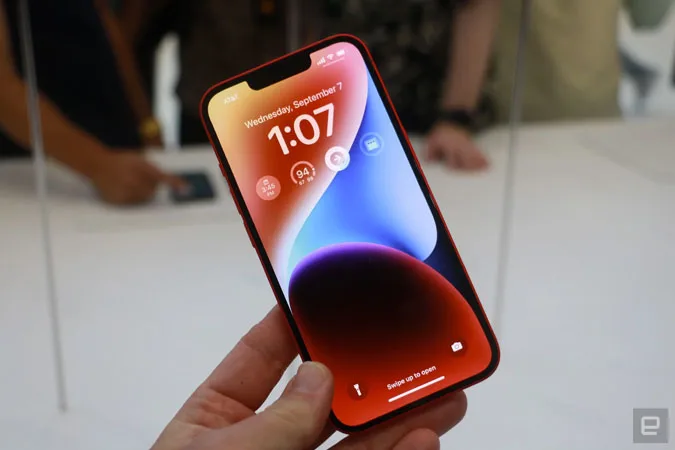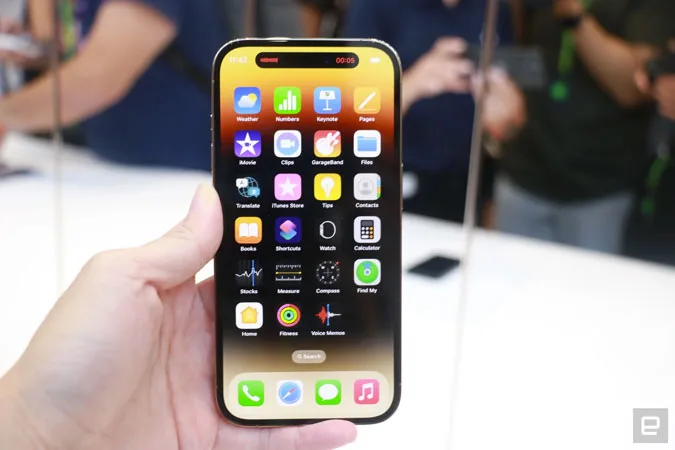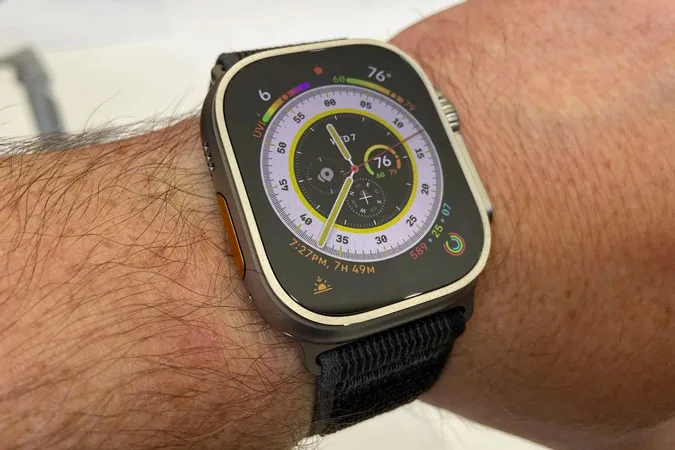The Morning After: Everything Apple announced at its Far Out event
Apple’s long-awaited Far Out event was a . The new was blessed with a super-size sibling, and the ditched the notch for a lozenge-shaped punch hole in its display. Sorry, the people at Apple are insisting we call the hole a “Dynamic Island,” since the screen around it will change size for notifications. The new was joined by the , with all of the added ruggedization extreme-sports types have been waiting for. Plus, the got touch-sensitive controls and better noise cancellation, thanks to the addition of the H2 chip. It was very much a show focused on quality-of-life tweaks for these devices, with some features you might consider neat, but nothing you might feel compelled to camp outside an Apple Store to be first in line to buy.
– Daniel Cooper
The biggest stories you might have missed
The iPhone Mini is no more.

Billy Steele / Engadget
There are two iPhones 14: the 6.1-inch standard model and its 6.7-inch Plus variant, harking back to the old regime of one “regular” sized device and one super-sized version. (Sadly, the iPhone Mini’s poor battery life made the unit a poor seller, so Apple has swung the axe.) Engadget’s Cherlynn Low got , which focus on better camera upgrades. The rear camera has a larger 12-megapixel sensor (with bigger 1.9-micron pixels) as well as autofocus on the forward-facing lens, for better selfies. Despite the phone’s size, the 14 Plus is lighter than its Pro siblings, a small mercy if you’ve ever dropped a phone on your face in bed.
The always-on display is an exciting feature.

Billy Steele / Engadget
Apple saved most of the big upgrades for the as it tries to put more water between its flagship handset and those in the ultra-premium tier. There’s a new A16 Bionic chip and a Super Retina XDR display that can run at 1Hz, giving users an always-on display for the first time. Plus, the Dynamic Island, a punch hole housing FaceID and the camera that can bleed into the display around it, making it look more like a notification window. The rear lens also got an upgrade, with a 48-megapixel primary sensor backed by Apple’s promise it’ll have dramatically improved low-light performance.
This may impact travelers pretty hard.
The iPhones 14 will be the first in the range to . On paper, this is a smart move – another hole in the phone you can eliminate for better waterproofing and security. But it’s also a bit of a thumbed nose for travelers who might prefer to swap SIMs when on the go to take advantage of cheaper local rates. Plus, if you smash your device, you can’t simply put your SIM in an old phone you’ve got lying around.
The Watch 8 gets some sensor upgrades but looks much like its predecessor.

Billy Steele / Engadget
Engadget’s , with its, uh, interesting design and additional action button on the side opposite the digital crown. The 49mm timepiece gets a 2,000 nit display, good for rough environments, an 86-decibel emergency siren and more accurate GPS. Given Apple products are always a little less rugged than we might hope, the promises the company made here are going to be well worth testing. Can this device really replace the hardcore Garmin for your extreme sport of choice? Only time will tell.
All products recommended by Engadget are selected by our editorial team, independent of our parent company. Some of our stories include affiliate links. If you buy something through one of these links, we may earn an affiliate commission. All prices are correct at the time of publishing.

